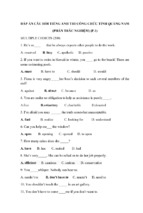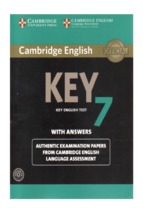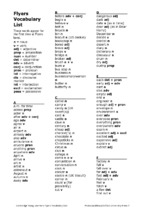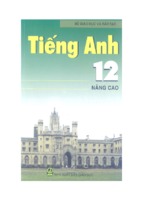DICTIONARY OF
POLITICS AND
GOVERNMENT
THIRD EDITION
Also published by Bloomsbury Reference:
Specialist dictionaries:
Dictionary of Accounting
0 7475 6991 6
Dictionary of Banking and Finance
0 7475 6685 2
Dictionary of Business
0 7475 6980 0
Dictionary of Computing
0 7475 6622 4
Dictionary of Economics
0 7475 6632 1
Dictionary of Environment and Ecology
0 7475 7201 1
Dictionary of Hotels, Tourism and Catering Management
1 9016 5999 2
Dictionary of Human Resources and Personnel Management
0 7475 6623 2
Dictionary of ICT
0 7475 6990 8
Dictionary of Law
Dictionary of Marketing
0 7475 6636 4
0 7475 6621 6
Dictionary of Medical Terms
0 7475 6987 8
Dictionary of Military Terms
0 7475 7477 4
Dictionary of Nursing
0 7475 6634 8
Dictionary of Science and Technology
0 7475 6620 8
Easier English™ titles:
Easier English Basic Dictionary
0 7475 6644 5
Easier English Basic Synonyms
0 7475 6979 7
Easier English Dictionary: Handy Pocket Edition
0 7475 6625 9
Easier English Intermediate Dictionary
0 7475 6989 4
Easier English Student Dictionary
0 7475 6624 0
English Study Dictionary
1 9016 5963 1
English Thesaurus for Students
1 9016 5931 3
Check Your English Vocabulary workbooks:
Business
0 7475 6626 7
Computing
1 9016 5928 3
Academic English
0 7475 6691 7
Law
1 9016 5921 6
IELTS
0 7475 6982 7
FCE +
0 7475 6981 9
®
TOEFL
0 7475 6984 3
Visit our website for full details of all our books
www.bloomsbury.com/reference
DICTIONARY OF
POLITICS AND
GOVERNMENT
THIRD EDITION
P.H. Collin
A BLOOMSBURY REFERENCE BOOK
www.bloomsbury.com/reference
Originally published by Peter Collin Publishing
First published 1988
Second edition published 1997, 2001
Third edition published 2004
Bloomsbury Publishing Plc
38 Soho Square, London W1D 3HB
Copyright © P.H. Collin 1988, 1997
This edition copyright © Bloomsbury Publishing Plc 2004
All rights reserved. No part of this publication may
be reproduced in any form or by any means without the
prior written permission of the publishers.
British Library Cataloguing-in-Publication Data
A catalogue record for this book is available from the British Library
ISBN 0 7475 7220 8
eISBN-13: 978-1-4081-0207-7
Editor
Peter Holmes
Head of Political and Social Sciences
Hills Road Sixth Form College, Cambridge, UK
Text Production and Proofreading
Katy McAdam, Heather Bateman, Emma Harris
All papers used by Bloomsbury Publishing are natural, recyclable
products made from wood grown in well-managed forests.
The manufacturing processes conform to the
environmental regulations of the country of origin.
Text processing and computer typesetting by Bloomsbury
Printed and bound in Italy by Legoprint
Contents
Introduction
Preface
Pronunciation Guide
The Dictionary
Supplements
Legislative Procedure in the United Kingdom
Legislative Procedure in the European Union
Legislative Procedure in the United States of America
United Kingdom Court Structure
United States of America Court Structure
The United Kingdom: Members of the Cabinet
Prime Ministers of Great Britain
Structure of a British Government Department:
The Department of Trade and Industry
Kings and Queens of England
The United States of America: Members of the Cabinet
Presidents of the United States of America
Introduction
When we are constantly told that there is widespread disillusionment with the
political system, it is gratifying to observe that it remains a subject of intense
study. There is much to examine. Constitutional change is in the air. Politicians
are seeking new ways to combat voter apathy. This third edition of the Dictionary
comes at a highly relevant time.
The democratic structure of the United Kingdom has changed and is changing.
Devolved legislatures and Assemblies are in place in Scotland and Wales. A
devolved Assembly in Northern Ireland remains in abeyance until political
dialogue is resumed. The devolution process is still evolving. The dividing line
between what is devolved and what is reserved will inevitably be subject to
ongoing debate. Questions will continue to be raised about the role of MPs at
Westminster who represent parts of the United Kingdom which control their own
domestic affairs.
Devolution does not necessarily stop at the borders of England. The English
regions are expected to have the opportunity of deciding whether they too would
prefer a new unit of devolved government. If agreed, this would have a knock-on
effect on the existing structure of local government both in metropolitan and shire
areas. What is already a non-uniform pattern of provision looks set to become
more varied still.
The present Government has re-lit the blue touch paper of House of Lords reform,
starting with the partial abolition of the hereditary peers in 1999. It has continued
to burn slowly. In a democracy, there should arguably be no contest between the
legitimacy of an elected and an appointed second chamber. However, in the
United Kingdom the issue is clouded with unresolved questions over powers,
systems of election and scope of prime ministerial patronage. Hybrid solutions
abound, all with their champions. But when given an opportunity in early 2003,
the House of Commons could not resolve the matter of Lords’ composition. The
end of what was begun is not yet in sight.
The evolution of the European Union also has an impact on internal democratic
structures. Whether it is through the pressure of European integration or the wider
process of globalisation, there are complaints from people that more is happening
which is outwith their control. National parliaments across Europe are stirring as
they sense that they are losing ownership of legislation. The much talked about
democratic deficit has yet to be addressed to the satisfaction of many
parliamentarians and people.
It is perhaps the growing perception that ordinary people have less and less
influence in important decisions affecting their lives, which has increased voter
alienation and has affected participation in elections. This has prompted debate
about ways to make elections more user friendly. E-voting and non-traditional
polling stations are under active consideration, but the highest profile experiment
to date has been the introduction of all postal ballot elections. Early evidence
suggests that turn-out increases, but so allegedly does the risk of fraud. The jury
(in this case the Electoral Commission) is still out. If eventually information
technology is fully harnessed to the electoral process, a distant prospect is held out
of almost instant elections in which voters will have at their fingertips
comprehensive information about parties and candidates. The ramifications for all
concerned would be profound.
By a variety of means, contact between the elected and their electors may be
increasing, but the quality as well as quantity of those exchanges needs to be
addressed. For a democratic system to work properly there has to be dialogue.
But can dialogue adequately be achieved by electronic means or paper surveys?
Electors and elected need to debate together so that the comparative strengths of
various propositions can be tested. Through better two-way communication, it is
important to ensure that disappointment does not automatically lead to feelings of
rejection. The true test of a democracy is how it deals with minorities. Everyone
cannot be in the majority on every issue.
The media might be expected to provide the channels through which information
and ideas can flow. Yet too often there is an emphasis on entertainment or
controversy for its own sake in reporting parliamentary and political events.
Opinion has priority over fact. Parliament is more often sketched than reported.
Members of the public are often candid in admitting that there is much they do not
know. A great deal can be picked up from this Dictionary to improve people’s
confidence in negotiating their way through the system.
But politics and Parliament can only be brought alive through debate, the injection
of ideas, the clash of personality and a degree of passion. The political system is
not a private club; it is a broad public network which anyone can enter. The more
people do so, the healthier democracy will be whether at village, town, city,
national and, even international levels. If this Dictionary encourages participation
as well as study, it will be doubly welcome.
Rt Hon Sir Alan Haselhurst MP
Chairman, Ways and Means and Deputy Speaker
House of Commons
Preface
This dictionary provides the user with the basic vocabulary used in the fields of
government and politics, especially in the United Kingdom, the European Union
and the United States, and also contains some more informal terms used in the
media. The subject matter covers national legislatures, elections, local
government, parliamentary and council procedure, international affairs and
political parties and theories.
Each entry is explained in clear straightforward English. Examples are given to
show how the words and phrases are used in normal contexts. Many words also
have comments of a more general nature, giving encyclopedic information about
procedures and institutions. At the back of the book there are supplements giving
information about the political and legislative systems in the United Kingdom, the
European Union and the United States.
Pronunciation Guide
The following symbols have been used to show the pronunciation of the main
words in the dictionary.
Stress is indicated by a main stress mark ( � ) and a secondary stress mark ( � ) .
Note that these are only guides, as the stress of the word changes according to its
position in the sentence.
Vowels
�
ɑ�
ɒ
a
aυ
aə
aυə
ɔ�
ɔ
e
eə
e
eυ
��
i�
i
ə
ə
u
u�
υ
υə
'
Consonants
back
harm
stop
type
how
hire
hour
course
annoy
head
fair
make
go
word
keep
happy
about
fit
near
annual
pool
book
tour
shut
b
d
ð
d�
f
�
h
j
k
l
m
n
ŋ
p
r
s
ʃ
t
tʃ
θ
v
w
x
�
z
buck
dead
other
jump
fare
gold
head
yellow
cab
leave
mix
nil
sing
print
rest
save
shop
take
change
theft
value
work
loch
measure
zone
GovtPol.fm Page 1 Tuesday, July 13, 2004 8:05 PM
A
AAFC abbreviation Agriculture and
AAFC
Agri-Food Canada
abandon /ə�b�ndən/ verb to give
up or not to continue something 왍 to
abandon a Bill, an action to give up
trying to promote a Bill
abdicate /��bdket/ verb to give up
the position of king or queen of a
country
abdication /��bd�keʃ(ə)n/ noun
the act of giving up the position of
king or queen of a country
abide by /ə�bad ba/ verb to obey
something such as an order or a rule 쑗
The government promised to abide by
the decision of the High Court. 쑗 The
rebels did not abide by the terms of the
agreement.
abjuration
/��bd�υə�reʃ(ə)n/
noun the act of giving up something
abjure /əb�d�υə/ verb 1. to give up
something 2. US to swear not to bear
allegiance to another country
abode /ə�bəυd/ noun the place
where someone lives (formal) 쒁 right
abandon
|
abdicate
abdication
|
abide by
|
abjuration
|
abjure
|
abode
|
of abode
abolish /ə�bɒlʃ/ verb to put an end
to an institution or practice 쑗 The
Chancellor of the Exchequer refused
to ask Parliament to abolish the tax on
alcohol. 쑗 The Senate voted to abolish
the death penalty.
abolition /��bə�lʃ(ə)n/ noun an act
of putting an end to an institution or
practice 쑗 to campaign for the abolition of the death penalty 쑗 Anarchists
advocate the abolition of the state.
abrogate /��brə�et/ verb to overturn a treaty or law
abrogation /��brə��eʃ(ə)n/ noun
the act of overturning a treaty or law
abolish
|
abolition
|
abrogate
abrogation
|
absence /��bsəns/ noun the fact of
not being where you usually are or
where you are expected to be. 쒁 leave
of absence 왍 in the absence of when
someone is not present 쑗 In the absence of the chairman, his deputy took
the chair. 왍 apologies for absence the
list of members of a committee or other group who have apologised for not
being able to attend a meeting, read
out at the beginning of the meeting
absent /��bsənt/ adjective not
present
absentee /��bsən�ti�/ noun a person who does not attend a meeting or
event when they are expected
absentee
ballot
/��bsen�ti�
�b�lət/ noun same as postal vote
absolute government /��bsəlu�t
���vəmənt/ noun government by a
person or group of people who exercise total power and where the ordinary population has no vote and no
say in the government of the state
absolute majority /��bsəlu�t mə
�d�ɒrti/ noun the situation of having
more votes than all other candidates or
parties combined 쑗 In the alternative
vote system, if no candidate has an absolute majority at the first count, the
second preferences are counted.
absolute privilege /��bsəlu�t
�prvld�/ noun a privilege which
protects an MP speaking in the House
of Commons from being sued for defamation or libel
absolutism
/��bsəlu��tz(ə)m/
noun the political theory that a government should have total power
absolutist /��bsə�lu�tst/ adjective, noun a person who believes the
government should have total power
absence
absent
absentee
|
absentee ballot
|
absolute government
absolute majority
|
absolute privilege
absolutism
|
absolutist
|
GovtPol.fm Page 2 Tuesday, July 13, 2004 7:51 PM
abstain
2
abstain /əb�sten/ verb not to do
abstain
|
something deliberately, especially not
to vote 쑗 Sixty MPs abstained in the
vote on capital punishment.
abstention /əb�stenʃən/ noun the
act of deliberately not doing something, especially voting 쑗 The motion
was carried by 200 votes to 150, with
60 abstentions.
abstract /��bstr�kt/ verb to make a
summary of a document or speech
abuse noun /ə�bju�s/ 1. the wrong
use of something 쑗 The Chancellor of
the Exchequer has introduced a Bill to
correct some of the abuses in the
present tax system. 왍 abuse of Parliament something that is breaks accepted parliamentary rules of conduct 왍
abuse of power the use of legal powers in an illegal or harmful way 왍
abuse of rules the use of rules to
achieve a purpose which is open to
criticism, e.g. the use of the right to introduce a motion into the House of
Commons to prevent a debate from
continuing 2. rude or insulting words
3. bad treatment of a person, often of
a sexual nature (NOTE: no plural for (2)
or (3)) 쐽 verb /ə�bju�z/ 1. to use something wrongly 쑗 It was claimed that
the government whips had abused the
rules of the House of Commons by
preventing full discussion of the Private Members Bill. 왍 to abuse your
authority to use your authority in an
illegal or harmful way 2. to say rude
words to someone 쑗 He abused the police before being taken to the cells. 3.
to treat someone badly, often in a sexual way
ACAS /�ek�s/ abbreviation Advisory Conciliation and Arbitration Service
ACC /�e si� �si�/ abbreviation Association of County Councils
accede /ək�si�d/ verb 1. to sign an
international treaty or agreement 쑗 In
1972 Britain acceded to the European
Economic Community. 2. to take up an
official position, especially as king or
queen 쑗 accede to the throne 3. to accept or agree with something 왍 to acabstention
|
abstract
abuse
|
|
ACAS
ACC
accede
|
cede to a request or demand to do
what someone wants
access /��kses/ noun 1. the opportunity to use or do something 쑗 access
to education and healthcare 2. the opportunity to meet someone important
쑗 They have access to the Prime Minister and are said to influence the decisions he takes. 쐽 permission to obtain or see private or secret information 쑗 to have access to personal
records 쐽 noun 1. a way of getting to
a place 쑗 level access to the seating areas 쑗 wheelchair access 2. the right of
the owner of a piece of land to use a
public road which is next to the land 쑗
She complained that she was being
denied access to the main road.
(NOTE: no plural) 쐽 verb 1. to get information, e.g. to be able to obtain
data from a computer 쑗 The staff in the
Housing Department can access
records on all properties and tenants.
2. to get to a place
accession /ək �seʃ(ə)n/ noun 1. the
act of signing an international treaty
or agreement 2. the occasion of taking
up an official position 왍 accession to
the throne the occasion of becoming
King or Queen
accession country /ək �seʃ(ə)n
�k�ntri/ noun a country that will become or has recently become a Member State of the European Union
Accession Treaties /ək �seʃ(ə)n
�tri�tiz/ plural noun the international
agreements establishing the conditions under which countries become
Member States of the European Union
accommodation centre /ə�kɒmə
�deʃ(ə)n �sentə/ noun a place where
people live while their request to enter
and remain in a country is considered
account /ə�kaυnt/ noun 1. a description of, or explanation for, some
event or situation 쑗 The minister gave
a full account to Parliament of the accident. 2. a financial statement (NOTE:
Often used in the plural.) 쐽 verb to
give an explanation of some event or
situation, especially a bad one 쑗 They
will have to account to their constituents for this failure. 앳 to consider
access
accession
|
accession country
|
Accession Treaties
|
accommodation centre
|
account
|
|
GovtPol.fm Page 3 Tuesday, July 13, 2004 7:51 PM
3
something carefully as part of doing
something else 쑗 The Committee will
take account of the report of the Royal
Commission or will take the Royal
Commission’s report into account
when drafting the Bill.
accountability /ə�kaυntə�blti/
noun the situation of being required to
explain what has happened and take
responsibility for it 쑗 the accountability of elected representatives to their
electors 쑗 There have been demands
for increased accountability for ministers.
accountable /ə�kaυntəb(ə)l/ adjective being required to explain what
has happened and take responsibility
for it 쑗 Ministers are accountable to
Parliament.
accredit /ə�kredt/ verb to appoint
somebody as an envoy or ambassador
to represent their country abroad
accredited /ə�kredtd/ adjective 1.
chosen and officially appointed to represent an organisation 쑗 an accredited
agent 2. chosen and appointed by one
country to represent it in an official capacity in another country 쑗 She is accredited as her country’s ambassador
to the United Nations.
acculturation /ə�k�ltjυ�reʃ(ə)n/
noun the assimilation of parts of a different culture
acknowledge /ək�nɒld�/ verb 1.
to accept that something is true or necessary 쑗 We acknowledge there were
mistakes made in the past and we must
learn from them. 2. to confirm that
something has been received, such as
a letter 쑗 The office of the Ombudsman
has acknowledged receipt of the letter.
3. to thank someone publicly or officially for something they have done 쑗
I’d like to take this opportunity to acknowledge all the hard work that has
gone into making this campaign such
a success. 4. to recognise rights or authority officially 쑗 They refused to acknowledge the new regime.
acknowledgement
/ək
�nɒld�mənt/ noun 1. acceptance that
something is true or necessary 쑗 There
accountability
|
|
accountable
|
accredit
|
accredited
|
acculturation
|
|
acknowledge
|
acknowledgement
|
activist
is almost universal acknowledgment
of the need to take global warming seriously. 2. a letter or card to say that
something has been received 쑗 She
wrote to her MP and received an acknowledgement
immediately.
3.
thanks for something that has been
done 쑗 acknowledgement of her role in
the achievement
acquis communautaire French
words meaning ‘established commuacquis communautaire
nity rights’: the contents of the various
treaties agreed to by the Member
States of the European Union, which
have gradually built up a body of law
under which the EU operates
act /�kt/ noun a law which has been
approved by a law-making body. See
Comment at bill (NOTE: In the United
act
Kingdom, laws are approved by Parliament and in the USA by Congress.)
COMMENT:
Before an Act becomes
law, it is presented to Parliament in
the form of a Bill. See notes at BILL.
citizenship
/��ktv
�stzənʃp/ noun the full involvement of people in a variety of forms of
politics, including voting, joining a
party or pressure group, campaigning
or standing for election 쑗 It is important for the survival of democracy that
active citizenship should be encouraged.
activism /��ktvz(ə)m/ noun energetic and sometimes aggressive support for a social or political cause
activist /��ktvst/ noun 1. a person
who is very active in pursuing social
or political change, sometimes by extreme means 2. a person who works
regularly for a political party, sometimes a person who is in disagreement
with the main policies of their party or
whose views are more extreme than
those held by the majority of their party 쑗 The meeting was disrupted by an
argument between the chairman and
left-wing activists. 쑗 Party activists
have urged the central committee to
adopt a more radical approach to the
problems of unemployment. Also
called party activist
active
active citizenship
activism
activist
GovtPol.fm Page 4 Tuesday, July 13, 2004 7:51 PM
Act of Parliament
4
of Parliament /��kt əv
�pɑ�ləmənt/ noun a decision which
has been approved by Parliament and
has received the Royal Assent and so
becomes law
Act of Union /��kt əv �ju�njən/
noun the act of 1801, by which the
parliaments of Great Britain and Ireland were joined to form the United
Kingdom
Act
Act of Parliament
Act of Union
Act of Union with Scotland
Act of Union with Scotland
/��kt əv �ju�njən wð �skɒtlənd/
noun the parliamentary act of 1707
which joined England and Scotland
together to form Great Britain
actual possession /��ktʃuəl pə
�zeʃ(ə)n/ noun the occupation and
control of land and buildings
actual value /��ktʃuəl �v�lju�/
noun the real value of something if
sold on the open market
actuarial tables /��ktʃueəriəl
�teb(ə)lz/ plural noun lists showing
how long people are likely to live,
used to calculate life assurance premiums
additional member system /ə
�dʃ(ə)nəl �membə �sstəm/ noun an
electoral system used in elections for
the Scottish Parliament, Welsh Assembly and Greater London Assembly, where a proportion of the representatives are elected by the first-pastthe-post system, and the others by a
party list system, giving additional
members to ensure the result is more
proportional (NOTE: Note: the system
actual possession
|
actual value
actuarial tables
additional member system
|
operates in some countries with the
constituency representatives elected
by a majoritarian system)
address /ə�dres/ noun 1. a formal
address
|
speech 쑗 In his address to the meeting,
the mayor spoke of the problems facing the town. 쑗 In his State of the Union address, the president spoke of the
problems of terrorism. 쒁 humble address 왍 address of thanks a formal
speech thanking someone such as a
well-known person for doing something such as officially opening a new
building 왍 the Queen’s Speech at the
State Opening of Parliament. 쒁 debate
on the address 2. the details of
number, street and town where an office is or where a person lives 쐽 verb
1. to speak to 쑗 The Leader of the Opposition was asked to address the
meeting. 2. to speak about or deal with
a particular subject or problem 쑗 He
then addressed the question of government aid to universities. 왍 to address
yourself to something to deal with a
particular problem 쑗 the government
will have to address itself to problems
of international trade 3. to write on an
envelope the details of the number,
street and town where an office is or a
person lives 쑗 an incorrectly addressed package
ad hoc /��d �hɒk/ Latin phrase
meaning ‘for this particular purpose’
왍 an ad hoc committee a temporary
committee set up to study a particular
problem. 쒁 standing committee
ad hoc Select Committee /��d
hɒk s�lekt kə�mti/ noun a committee of Congress set up to examine a
special case or problem
adjourn /ə�d�#�n/ verb to stop a
meeting for a period or to postpone a
legal hearing to a later date 쑗 They adjourned the meeting or the meeting
was adjourned. 쑗 The chairman adjourned the tribunal until three
o’clock. 쑗 The meeting adjourned at
midday. 쑗 The appeal was adjourned
while further evidence was being produced. 왍 the House stands adjourned the sitting of the House of
Commons is adjourned and will
resume on the following day
ad hoc
ad hoc Select Committee
|
|
adjourn
|
‘…the Commons adjourned until January 18 without taking a vote on the Government’s
resolution’
[Toronto Globe & Mail]
adjournment /ə�d�#�nmənt/ noun
adjournment
|
1. an act of stopping a meeting for a
period or postponing a legal hearing to
a later date 쑗 The adjournment lasted
two hours. 2. the act of ending a sitting
of the House of Commons or Lords, or
of the House of Representatives or
Senate, which will meet again on the
following day 왍 motion for adjournment of the debate a motion to ad-
GovtPol.fm Page 5 Tuesday, July 13, 2004 7:51 PM
5
journ a debate which has the effect of
killing the motion being debated 왍
motion for the adjournment of the
House motion to adjourn a sitting until the following day 왍 adjournment
sine die an adjournment without fixing a date for the next meeting, used in
the US Congress to end a session 왍 adjournment to a day certain a motion
to adjourn a sitting of Congress to another day
adjournment
debate
/ə
�d�#�nmənt d�bet/ noun a debate in
the House of Commons on a motion to
adjourn a sitting, used by backbench
MPs to raise points of particular interest to themselves. Also called debate
adjournment debate
|
|
on the adjournment
administer /əd�mnstə/ verb 1. to
administer
|
control, manage or govern something
쑗 The state is administered directly
from the capital. 2. to be responsible
for making sure something happens in
the correct way 왍 to administer justice to carry out the law 왍 to administer an oath to make someone swear
an oath
administration
/əd�mn
�streʃ(ə)n/ noun 1. the organisation,
control or management of a geographical area or of a specific aspect of government, especially by a bureaucracy
or group of experts 쑗 There has been a
lack of effective administration in the
province since the riots. 쑗 The administration of justice is in the hands of
the government-appointed justices of
the peace. 쑗 She took up a career in
hospital administration. 2. especially
in the USA, a particular government 쑗
It was one of the main policies of the
last administration. 쑗 The Bush administration took office in 2001.
administrative /əd�mnstrətv/
adjective concerned with the organisation, control or management of a geographical area or with a specific aspect of government
administrative
court
/əd
�mnstrətv �kɔ�t/ noun in some
countries such as France, a court or tribunal which decides in cases where
government action is thought to have
administration
|
|
administrative
|
administrative court
|
admit
affected and harmed the lives or property of citizens. Also called administrative tribunal
law
/əd
�mnstrətv lɔ�/ noun the laws relating to the running of government, and
the relationship between the government and the citizens
administrator
/əd�mnstretə/
noun a person who works for a government, public body or business as a
senior manager 쑗 The governor of the
province has to be a good administrator. 쑗 The council has appointed too
many administrators and not enough
ordinary clerical staff. 쑗 The best administrators come from the civil service training school.
Admiralty /��dm(ə)rəlti/ noun formerly in the UK, the government office which was in charge of the Navy
Admiralty Board /��dmərəlti
�bɔ�d/ noun a committee which is responsible for the administration of the
Royal Navy, forming part of the UK
Ministry of Defence
Admiralty law /��dm(ə)rəlti lɔ�w/
noun the law relating to ships and sailors, and actions at sea
admission /əd�mʃ(ə)n/ noun 1. the
act of accepting someone into a group
or organisation 쑗 admission into the
European Union 2. permission to go
into a place 쑗 Admission to the visitors’ gallery is restricted. 3. the act of
making a statement agreeing that particular facts are correct or saying that
something really happened 쑗 The Opposition called for an admission of error on the part of the Minister.
admit /əd�mt/ verb 1. to allow
someone to go in 쑗 The public is not
being admitted at present. 2. to agree
that an allegation or accusation is correct or to say that something really
happened 쑗 He admitted his mistake or
his liability. 쑗 She admitted that the
department was at fault. 쑗 He admitted having connections with the company which had been awarded the
contract. (NOTE: admitted – admitting.)
administrative law
administrative
|
administrator
|
Admiralty
Admiralty Board
Admiralty law
admission
|
admit
|
GovtPol.fm Page 6 Tuesday, July 13, 2004 7:51 PM
adopt
6
adopt /ə�dɒpt/ verb 1. to agree to
something or accept something so that
it becomes law 쑗 The report of the subcommittee was received and the
amendments adopted. 쑗 The meeting
adopted the resolution. 쑗 The proposals were adopted unanimously. 쑗 The
council has adopted a policy of positive discrimination. 2. to be adopted,
to be chosen by a party as a candidate
in an election 쑗 The Labour Party
adopted more women as candidates
for the General Election than ever before. 왍 to be adopted to be chosen by
the party as a candidate for election to
a parliamentary constituency
adoption /ə�dɒpʃən/ noun 1. the act
of agreeing to something so that it becomes legal or accepted 쑗 She moved
the adoption of the resolution. 2. the
act of choosing someone as a candidate in an election
adoption
meeting /ə�dɒpən
�mi�tŋ/ noun the meeting at which a
local party adopts someone as its candidate for an election
ad valorem /��d və�lɔ�rəm/ Latin
phrase meaning ‘according to value’
adopt
|
adoption
|
adoption meeting
|
ad valorem
|
COMMENT: Most taxes are ‘ad valorem’; VAT is calculated as a percentage of the charge made, income tax is
a percentage of income earned, etc.
|
�dju�ti/, ad valorem tax /��d və
�lɔ�rem t�ks/ noun a tax calculated
according to the value of the goods being taxed
adventurism /əd�vent�υrz(ə)m/
noun intervention by one government
in the affairs of another
adversarial politics /��dv#�
�seəriəl �pɒltks/ noun a system of
political activity where two sides oppose each other vigorously. This is
said to create the right conditions for
effective scrutiny of the government,
and for genuine debate.
adversary /��dvəs (ə)ri/ noun a person or organisation who is the opposing side in situation 쑗 a powerful political adversary
advice /əd�vas/ noun information
or suggestions given by one person to
|
adventurism
|
adversarial politics
|
|
|
adviser
|
advisory
|
|
ad valorem duty /��d və�lɔ�rəm
advice
advise
advisory board
ad valorem duty
adversary
another on what has happened in the
past or on what is the best course of
action to follow in the future 왍 to take
advice to ask an expert to give information and help about a problem 쑗
We’ll need to take legal advice before
agreeing.
advise /əd�vaz/ verb 1. to suggest
to someone what should be done 왍 to
advise against something to suggest
that something should not be done 쑗
The Minister advised against raising
the matter in the House. 쑗 The consultants advised against the proposed development plan. 2. to tell someone
what has happened or what will happen soon 쑗 We are advised that the report will be published next week.
adviser /əd�vazə/, advisor noun a
person who suggests what should be
done, by giving information on a specific area where he or she is an expert
advisory /əd�vaz(ə)ri/ adjective
acting as a person who tells someone
what to do or informs them about
events 쑗 He is acting in an advisory
capacity. 쐽 noun US an official warning
advisory board /əd�vaz(ə)ri
�bɔ�d/ noun a group of people who
help others to decide what to do or
keep them informed about what is
happening
advocacy /��dvəkəsi/ noun active
support for a cause or point of view
advocate noun /��dvəkət/ someone who actively supports a cause or
point of view 쑗 an advocate of relaxing the laws on cannabis 쐽 verb
/��dvəket/ to speak or work to support a cause or point of view 쑗 Anarchists advocate the abolition of the
state.
Advocate General /��dvəkət
�d�en(ə)rəl/ noun 1. one of the two
Law Officers for Scotland 2. in the
European Court of Justice, the officer
who presents a summary of a case to
the judges to help them in coming to a
decision
affair /ə�feə/ noun 1. a situation or
event 쑗 Is she involved in the copyright
advocacy
advocate
Advocate General
affair
|
GovtPol.fm Page 7 Tuesday, July 13, 2004 7:51 PM
7
affair? 2. something shocking that involves public figures 쑗 the arms smuggling affair 쑗 the Watergate affair 쐽
plural noun activities and events related to the government of a country or
countries 쑗 topics of current importance in world affairs 쒁 foreign af-
Agent-General
African National Congress
African
National
Congress
/��frkən �n�ʃ(ə)nəl �kɒŋ�res/ noun
fairs
a South African political party that
fought against apartheid and formed
South Africa’s first multiracial, democratically elected government in 1994.
Abbr ANC
African Union /��frkən �ju�njən/
noun an organisation of African states
established for mutual cooperation,
superseding the Organisation of African Unity in 2002
agency /�ed�ənsi/ noun 1. a government office or department which is
to some extent independent 쑗 The
Benefits Agency has responsibility for
making welfare payments. (NOTE: In
African Union
affairs of state /ə�feəz əv �stet/
affairs of state
|
plural noun government business
affiliate /ə�fliet/ verb to associate
affiliate
|
with a group or organisation 쑗 The
trade union was affiliated to the Labour Party
affiliation /ə�fli�eʃ(ə)n/ noun association with a group or organisation 왍
the union has no political affiliation
the union is not linked to any particular political party
affirm /ə�f#�m/ verb 1. (of a MP) to
promise allegiance to the monarch,
when the Oath of Allegiance is considered inappropriate on religious or
other grounds 쑗 Some of the new MPs
affirmed, instead of swearing the oath
of allegiance. 2. to support or approve
of something publicly 쑗 The report affirms the contribution of many voluntary groups working for racial harmony. 3. to confirm that something is correct
affirmation /��fə�meʃ (ə)n/ noun
1. a statement by an MP showing allegiance to the monarch, when the Oath
of Allegiance is considered inappropriate on religious or other grounds 2.
support or approval
affirmative action /ə�f#�mətv
��kʃən/ noun US a policy of preventing the unfair treatment of specific
groups in society who have a disadvantage, or who have suffered unfair
treatment in the past, such as people
with disabilities, ethnic groups and
women
affirmative
instrument
/ə
�f#�mətv �nstrυmənt/ noun a form
of Statutory Instrument, or order made
by a government minister on the authority of a previous act of parliament,
which must be approved by both
Houses of Parliament
affiliation
|
|
affirm
|
affirmation
|
affirmative action
|
affirmative instrument
|
agency
the United Kingdom, under reforms
which started under the Thatcher
government, a large number of areas were transferred from the direct
control of the Civil Service to agencies.) 2. an independent organisation
that deals with social problems 쑗 a
register of voluntary agencies in the
field of mental health
agenda /ə�d�endə/ noun 1. a list of
things to be discussed at a meeting 쑗
the committee agenda or the agenda of
the committee meeting 쑗 After two
hours we were still discussing the first
item on the agenda. 2. a list of priorities 쑗 Education was at the top of the
government’s agenda.
agent /�ed�ənt/ noun 1. a person
who represents a company or another
person 2. a party official who works to
support a candidate in an election 쑗
The party has six full-time election
agents. 쑗 The series of meetings was
organised by the local agent for the
Liberal Democrats. 3. a person who
works for a branch of government. 쒁
agenda
|
agent
secret agent
/�ed� (ə)nt
�d�en(ə)rəl/ noun the official representative of a provincial government
of a Commonwealth country in another Commonwealth country 쑗 the
Agent-General for Quebec in London
(NOTE: The plural is agents-general
or agent-generals.)
Agent-General
Agent-General
GovtPol.fm Page 8 Tuesday, July 13, 2004 7:51 PM
agent provocateur
8
agent provocateur /���ɒn prə
agent provocateur
|
�vɒkə�t#�r/ French words meaning
‘an agent who provokes’: a person
employed secretly by a government
who provokes others to commit a
crime, often by taking part in it personally, in order to find out who is not
reliable or in order to have his or her
associates arrested
age of consent /�ed� əv kən�sent/
noun the age at which someone can
legally agree to have sex
age of majority /�ed� əv mə
�d�ɒrti/ noun the age of legal responsibility, at which civil duties and rights
such as voting or being on a jury are
first undertaken
aggression /ə��reʃ(ə)n/ noun hostile action against another country, especially without provocation 쑗 They
accused the neighbouring states of aggression. 쑗 Numerous acts of aggression have been reported to the United
Nations. (NOTE: no plural. For the plural, use acts of aggression)
aggressor /ə��resə/ noun a person
or country which attacks another, especially without provocation 쑗 The
UN resolution condemns one of the
superpowers as the aggressor.
agitate /��d�tet/ verb to encourage people to take political action possibly involving protesting, demonstrating or engaging in direct action 쑗
The party is agitating for social reforms.
agitation /��d��teʃ(ə)n/ noun the
action of encouraging people to protest and demonstrate 쑗 There has been
widespread agitation in the capital
and the northern provinces. (NOTE: no
plural)
agitator /��d�tetə/ noun a person
who attempts to cause political unrest
쑗 Agitators from the right of the party
have tried to disrupt the meetings of
the council.
AGM /�e d�i� �em/ abbreviation Annual General Meeting
agrarian /ə��reəriən/ adjective promoting the interests of farmers and encouraging a fair system of land owner|
age of consent
|
age of majority
|
aggression
|
aggressor
|
agitate
agitation
|
agitator
AGM
agrarian
|
ship 쐽 noun someone who believes in
the fair distribution of land and the redistribution of land owned by rich
people
agrarianism
/ə��reəriənz(ə)m /
noun a political movement or philosophy that promotes the interests of
farmers, especially the redistribution
of land owned by rich people or by
government
agrarianism
|
Agriculture and Agri-Food Canada
Agriculture and Agri-Food
Canada /���rk�ltʃə ənd ��ri fu�d
�k�nədə/ noun a department of the
Canadian federal government that
conducts research and develops policies and programs to ensure the security of the country’s food system.
Abbr AAFC
Ahern /ə�h#�n/, Bertie (b. 1951) the
leader of the Fianna Fáil party since
1994 and Taoiseach (prime minister)
of the Republic of Ireland since 1997
aid /ed/ noun help, especially money, food or other gifts given to people
living in difficult conditions 쑗 The
government has set aside $20m for aid
to under-developed countries. 쑗 The
poorer countries depend on aid from
richer nations. 쑗 The government will
allocate 6% of the gross national
product for overseas aid.
AID /�e a �di�/ abbreviation Agency
for International Development
aid agency /�ed �ed�ənsi/ noun an
independent organisation that sends
financial or other help to a country
which is experiencing difficult conditions or a catastrophic event such as a
natural disaster or famine
aide /ed/ noun an assistant to someone such as a politician, who may also
offer advice 쑗 a presidential aide
aid worker /�ed �w#�kə/ noun a
person who works for an aid agency
airspace /�eəspes/ noun the sky
above an area of land or water over
which a state claims control 쑗 British
airspace
Albion /��lbiən/ noun Great Britain
alderperson /�ɔ�ldə�p#�sən/ noun
in the United States and Canada, a
Ahern
|
aid
AID
aid agency
aide
aid worker
airspace
Albion
alderperson
|
GovtPol.fm Page 9 Tuesday, July 13, 2004 7:51 PM
9
member of the legislative body of
some towns or cities
alderwoman /�ɔ�ldə�wυmən/ noun
in the United States and Canada, a
woman member of the legislative
body of some towns or cities
Al Fatah /��l �f�tə/ noun a political
group, part of the Palestine Liberation
Organisation, that wants to establish
an independent Palestinian state
alien /�eliən/ noun 1. mainly US a
person living in a country of which he
or she is not a citizen 2. (in the UK) a
person who is not a citizen of the UK,
not a citizen of a Commonwealth
country and not a citizen of the Republic of Ireland 쐽 adjective 1. mainly
US from a different country or culture
쑗 alien workers 2. different from what
is usual or familiar 쑗 an alien concept
alienate /�eliənet/ verb to do
something that makes someone stop
being friendly towards you 쑗 The government has alienated its main supporters. 쑗 The terrorist campaign has
alienated the public.
align /ə�lan/ verb to give support
publicly to a political group or party 왍
to align yourself with another country to follow a policy similar to that of
another country 쑗 the three neighbouring states aligned themselves with the
USA
allegiance /ə�li�d�(ə)ns/ noun obedience to the State or the Head of
State. 쒁 oath of allegiance
alliance /ə�laəns/ noun 1. a group
of two or more countries, people or
political parties, that are linked together by a formal agreement 2. a formal relationship between two or more
parties or countries 쑗 The country has
built up a series of alliances with its
larger neighbours. 쒁 ally
Alliance /ə�laəns/ noun in New
Zealand, a left-wing political party
that has been in coalition government
with the Labour Party since 1999
allied /��lad/ adjective 1. relating to
countries that have joined together to
fight a common enemy 쑗 the allied
alderwoman
|
Al Fatah
alien
alienate
align
|
allegiance
|
alliance
|
Alliance
|
allied
alternative vote
forces 2. associated or related 쑗 building and allied trades
allowance /ə�laυəns/ noun 1. an
amount of something which you are
legally or officially allowed to have 쑗
a travel allowance 쑗 a baggage allowance 쒁 personal allowances 2. a
payment made for a specific purpose 쑗
an allowance for unsociable hours 쑗
an expenses allowance
all-party /�ɔ�l �pɑ�ti/ adjective including members of all political parties 쑗 the report of the all-party committee on procedure 쑗 An all-party
group visited the United Nations.
all-party group /�ɔ�l �pɑ�ti ��ru�p/
noun a group of MPs from different
parties who have an interest in a particular subject 쑗 the all-party group on
telecommunications
ally /��la/ noun a country, person,
political party or group which is
linked to another in a friendly way so
that they can support one another 쑗 As
the invasion seemed likely, the President called on his allies for help. 쑗 The
committee has been run by the mayor
and his allies in the Workers’ Party. 쐽
verb to link one country, political party, group or person to another 왍 to ally
yourself with to become linked to
someone or another party or country,
for protection 쑗 He has allied himself
to the left wing of the party.
ALP abbreviation Australian Labor
Party
al-Qaeda /��l �kadə/ noun an international Islamic fundamentalist organisation, founded by Osama bin
Laden, which has been associated
with several terrorist incidents, including the attack on the World Trade
Center, New York (2001)
alternative vote /ɔ�l�t#�nətv
vəυt/ noun a system of voting used in
elections in some countries such as
Australia, in which voters show their
preferences on the ballot paper by
marking candidates with the numbers
1, 2, 3, 4, etc. If a candidate does not
get 50% of the first preference votes in
the first round of counting, the votes
allowance
|
all-party
all-party group
ally
ALP
al-Qaeda
alternative vote
|
- Xem thêm -




















